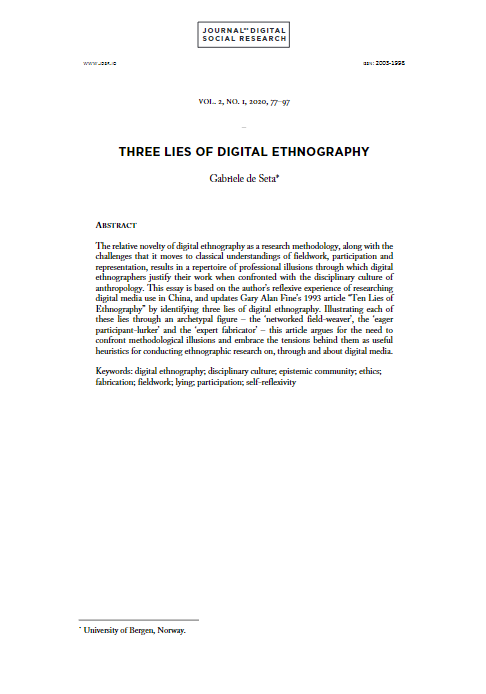Three lies of digital ethnography
DOI:
https://doi.org/10.33621/jdsr.v2i1.24Keywords:
disciplinary culture, epistemic community, ethics, fabrication, fieldwork, lying, participation, self-reflexivity, digital ethnographyAbstract
The relative novelty of digital ethnography as a research methodology, along with the challenges that it moves to classical understandings of fieldwork, participation and representation, results in a repertoire of professional illusions through which digital ethnographers justify their work when confronted with the disciplinary culture of anthropology. This essay is based on the author’s reflexive experience of researching digital media use in China, and updates Gary Alan Fine’s 1993 article “Ten Lies of Ethnography” by identifying three lies of digital ethnography. Illustrating each of these lies through an archetypal figure – the ‘networked field-weaver’, the ‘eager participant-lurker’ and the ‘expert fabricator’ – this article argues for the need to confront methodological illusions and embrace the tensions behind them as useful heuristics for conducting ethnographic research on, through and about digital media.

Downloads
Published
Issue
Section
License
Copyright (c) 2020 The Author

This work is licensed under a Creative Commons Attribution-NonCommercial-NoDerivatives 4.0 International License.



